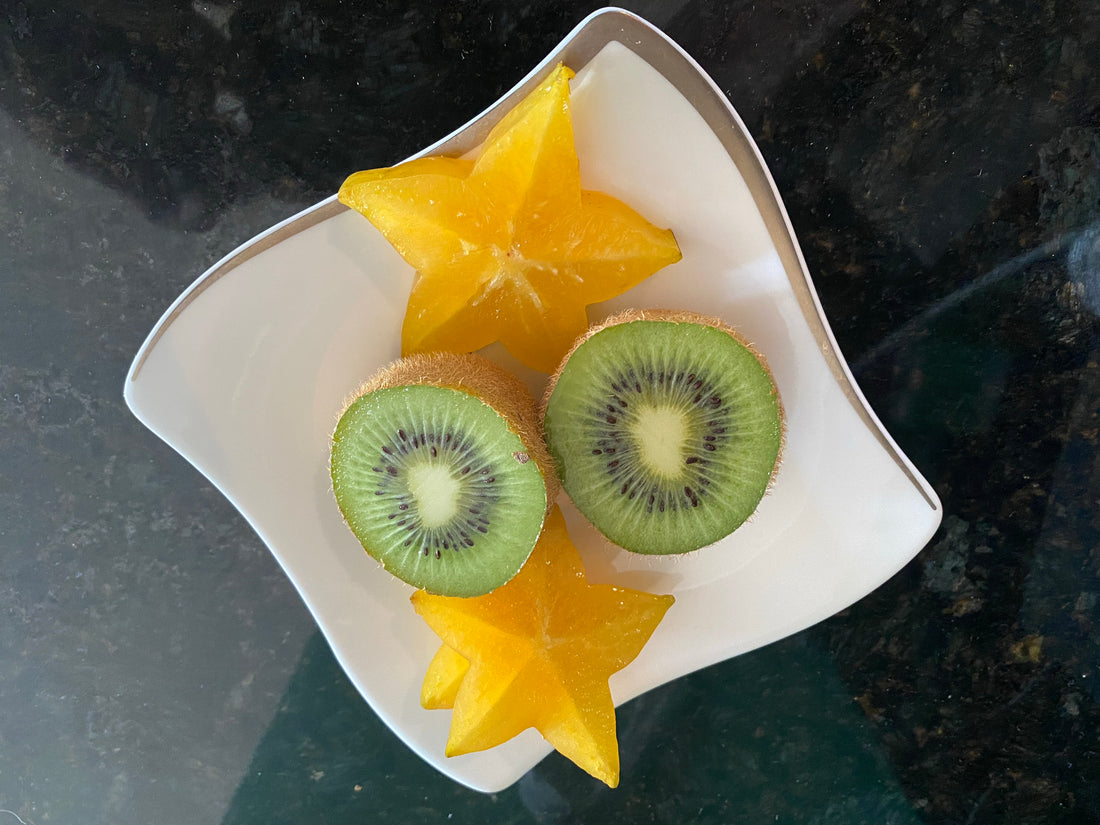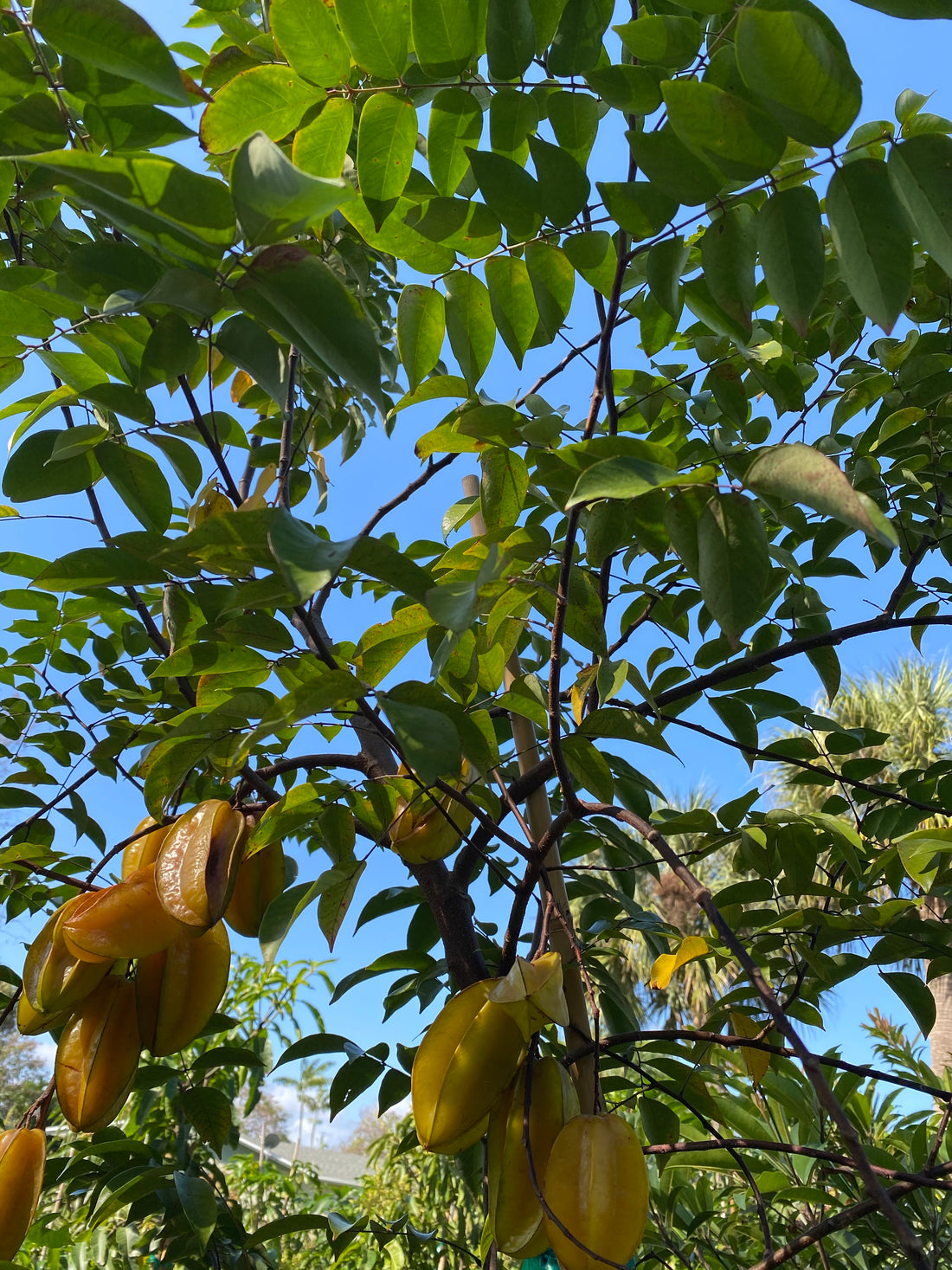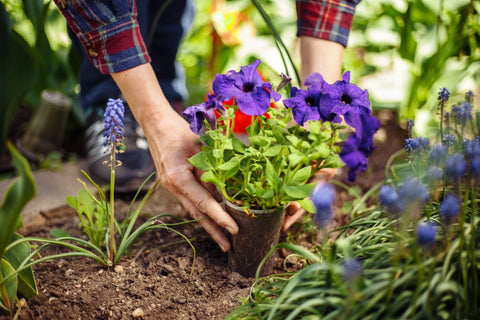1 product
-
Carambola Arkin Star Fruit Tree

 Carambola Arkin Star Fruit TreeLandscape Plants
Carambola Arkin Star Fruit TreeLandscape Plants- Regular price
-
$59.00 $275.00 - Regular price
-
$59.00 - Sale price
-
$59.00 $275.00
Description:
The carambola fruit tree, also known as star fruit tree, is a tropical and subtropical tree that produces unique and delicious star-shaped fruits. Here are some key facts about carambola trees:
Origin and Distribution: The carambola tree is native to Southeast Asia, specifically Malaysia and Indonesia. It is now cultivated in many tropical regions around the world, including parts of Asia, Africa, the Caribbean, and Central and South America.
Appearance: Carambola trees are medium-sized evergreen trees that can reach heights of 20 to 30 feet (6 to 9 meters). They have a dense and bushy canopy with pinnate leaves that are bright green and glossy. The flowers are small and pinkish-white, and they bloom in clusters.
Fruit: Carambola fruits are distinctively star-shaped when cut crosswise, giving them their popular name "star fruit." They are usually yellow or green when ripe, depending on the variety. The flesh is juicy and crisp, with a flavor that is both sweet and tart. The entire fruit is edible, including the thin skin.
Varieties: There are several varieties of carambola, each with its own unique characteristics. Some common varieties include Arkin, Kary, Fwang Tung, and Maha. The size, shape, and taste of the fruits can vary between varieties.
Cultivation: Carambola trees thrive in warm tropical and subtropical climates. They prefer well-drained soil and full sun exposure. The trees are typically grown from seeds or stem cuttings. Carambola trees are relatively low-maintenance and can be pruned to maintain a desired shape.
Uses: Carambola fruits are enjoyed fresh and are often used in culinary creations. They can be eaten on their own, sliced and used as a garnish on salads or desserts, or juiced to make refreshing beverages. The unique star shape of the fruit makes it visually appealing for presentations.
Fruit Benefits: Carambola fruits are not only tasty but also packed with beneficial nutrients. They are a good source of vitamin C and dietary fiber. Carambolas are known for their low calorie and high water content, making them a great option for hydration.
Carambola trees are a fascinating addition to tropical gardens, and their star-shaped fruits are not only delightful to taste but also visually striking.
Origin and Distribution: The carambola tree is native to Southeast Asia, specifically Malaysia and Indonesia. It is now cultivated in many tropical regions around the world, including parts of Asia, Africa, the Caribbean, and Central and South America.
Appearance: Carambola trees are medium-sized evergreen trees that can reach heights of 20 to 30 feet (6 to 9 meters). They have a dense and bushy canopy with pinnate leaves that are bright green and glossy. The flowers are small and pinkish-white, and they bloom in clusters.
Fruit: Carambola fruits are distinctively star-shaped when cut crosswise, giving them their popular name "star fruit." They are usually yellow or green when ripe, depending on the variety. The flesh is juicy and crisp, with a flavor that is both sweet and tart. The entire fruit is edible, including the thin skin.
Varieties: There are several varieties of carambola, each with its own unique characteristics. Some common varieties include Arkin, Kary, Fwang Tung, and Maha. The size, shape, and taste of the fruits can vary between varieties.
Cultivation: Carambola trees thrive in warm tropical and subtropical climates. They prefer well-drained soil and full sun exposure. The trees are typically grown from seeds or stem cuttings. Carambola trees are relatively low-maintenance and can be pruned to maintain a desired shape.
Uses: Carambola fruits are enjoyed fresh and are often used in culinary creations. They can be eaten on their own, sliced and used as a garnish on salads or desserts, or juiced to make refreshing beverages. The unique star shape of the fruit makes it visually appealing for presentations.
Fruit Benefits: Carambola fruits are not only tasty but also packed with beneficial nutrients. They are a good source of vitamin C and dietary fiber. Carambolas are known for their low calorie and high water content, making them a great option for hydration.
Carambola trees are a fascinating addition to tropical gardens, and their star-shaped fruits are not only delightful to taste but also visually striking.




